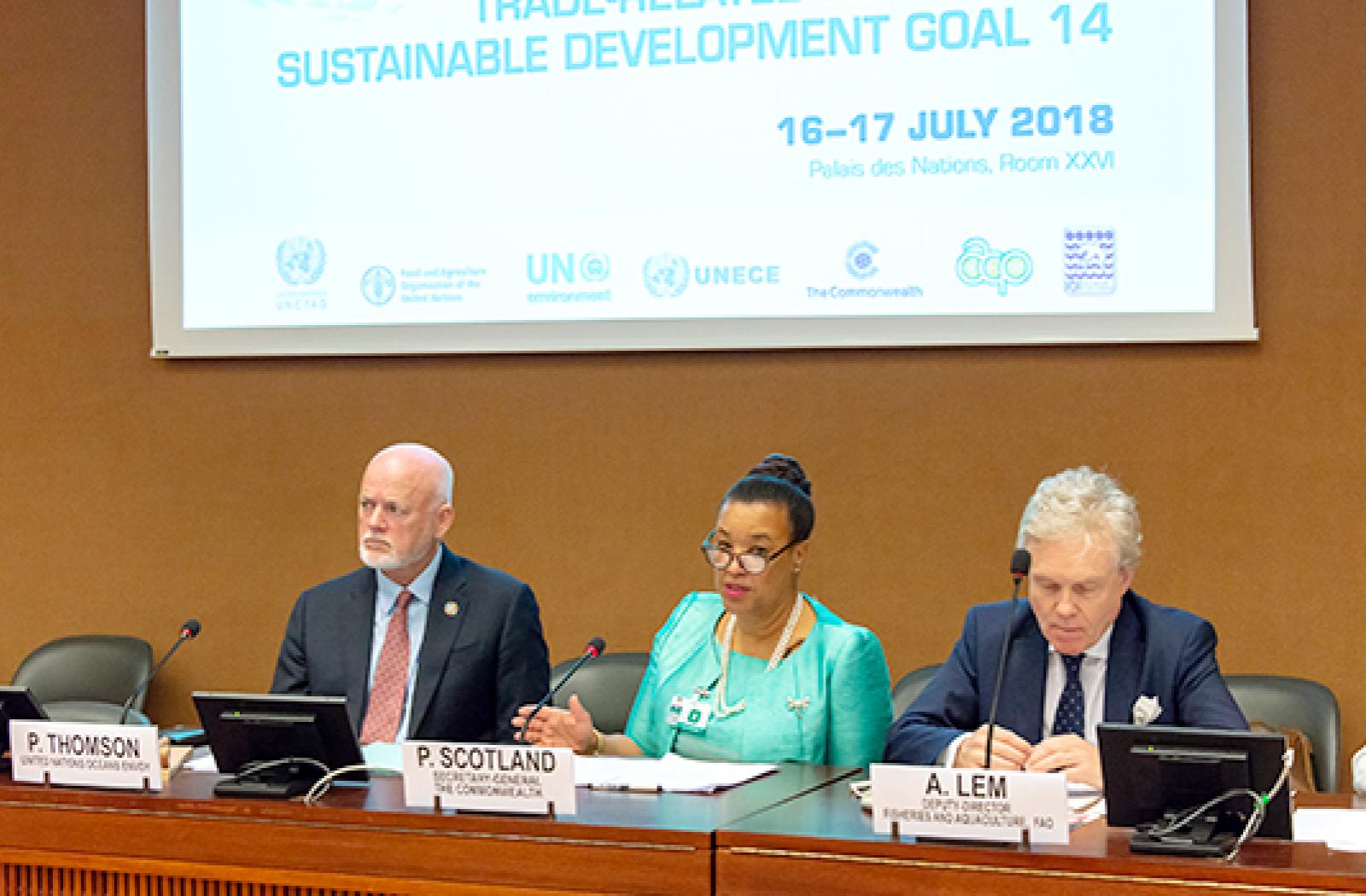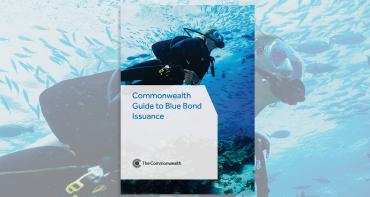The Secretary-General, Patricia Scotland, says urgent action is needed to save the world's oceans, since the livelihoods of millions of people depend on their preservation and sustainable development.

The Secretary-General, Patricia Scotland, says urgent action is needed to save the world's oceans, since the livelihoods of millions of people depend on their preservation and sustainable development.
Speaking at the second Oceans Forum in Geneva, the Secretary-General said: "Blue ecosystems are being degraded at an unprecedented rate and this is not an issue any country can solve alone. We are unlocking the power of 53 nations on what is clearly one of the most pressing causes of our time."
The Oceans Forum is exploring ways to achieve the trade-related targets of Sustainable Development Goal 14, which balances commerce with ocean conservation.
Secretary-General Scotland's comments were backed by UN Oceans Envoy Peter Thompson and Secretary-General of UNCTAD, Mukhisa Kituyi.
“We cannot afford the early harvest of the targets included in SDG14 to fail. Harmful fishing subsidies need to be redirected to the sustainable oceans economy,” said Mr Kituyi.
Secretary-General Scotland emphasised that partnerships are essential: "We are delighted to be working with all participants towards strengthening the position of our developing country members so that they are able to add value, diversify and seize trade opportunities while also improving environmental and social sustainability within the seafood value chain and related services."
The Secretary-General said that ensuring the sustainability of Seafood and Marine Value Chains (which link producers to consumers through complex networks) would only be possible by capitalising on the "distinctive goodwill and connectivity" among Commonwealth member nations.
She said Small Island Developing States are particularly dependent on the oceans economy, citing sustainable fisheries management as "of utmost importance."
"We also have to tackle the issue of harmful fishing subsidies, which severely undermine access to markets and competitiveness for producers in small states - particularly artisanal producers," she said.
Paulo Kautoke, Director of the Trade, Oceans and Natural Resources Directorate at the Commonwealth Secretariat said there is a need for more coordinated action on trade-related oceans governance.
“The governance of the global value chain is always complex but particularly so for the fisheries sector, as the WTO negotiations to address unfair competition because of harmful fishing subsidies have shown.”
When Commonwealth Heads of Government met in London earlier this year they adopted the Commonwealth Blue Charter, which maps out how member countries will lead the way in sustainably developing and protecting their ocean.


